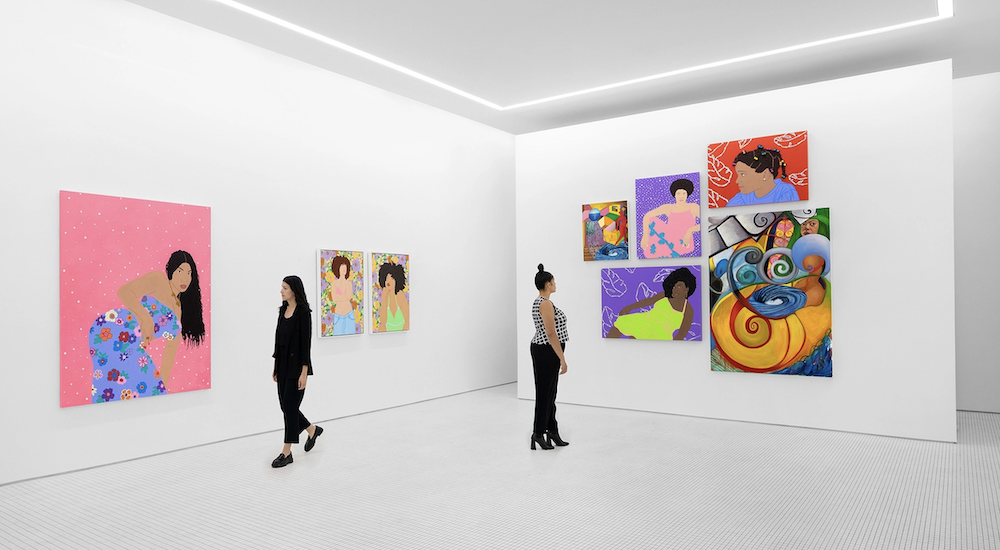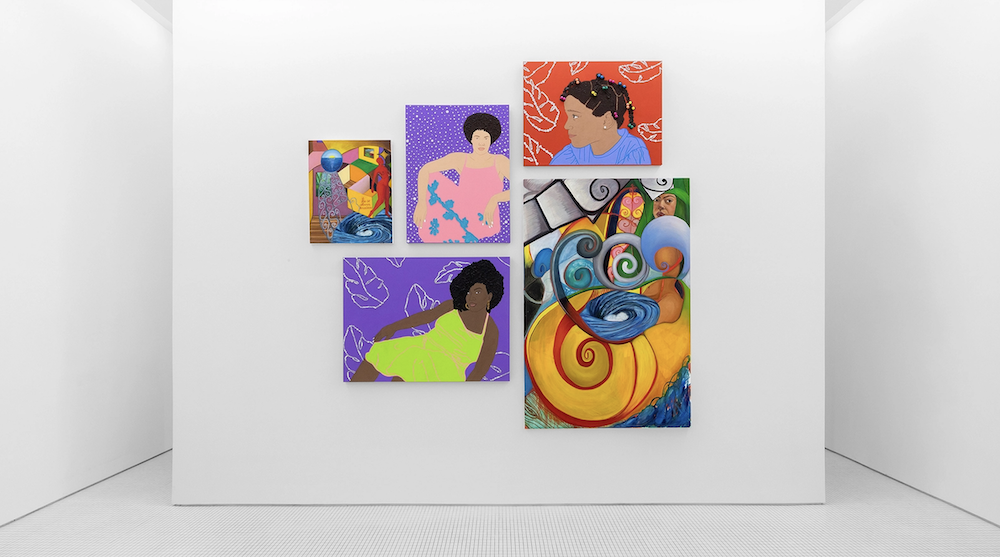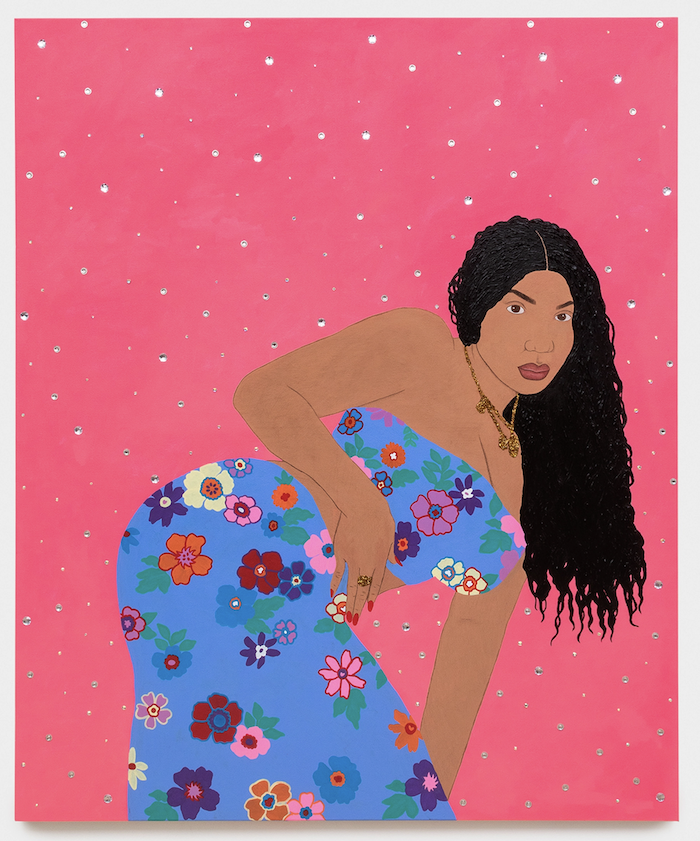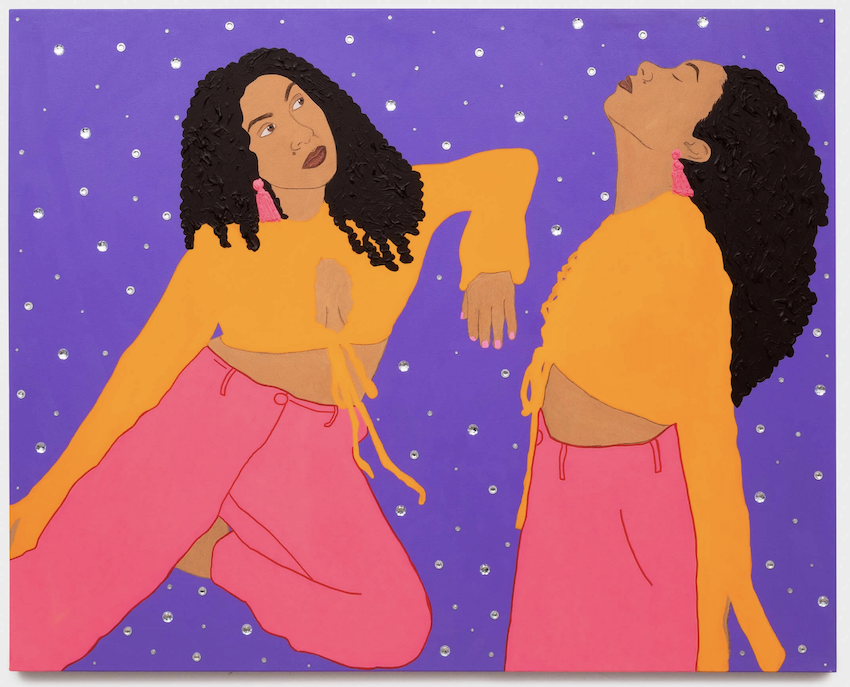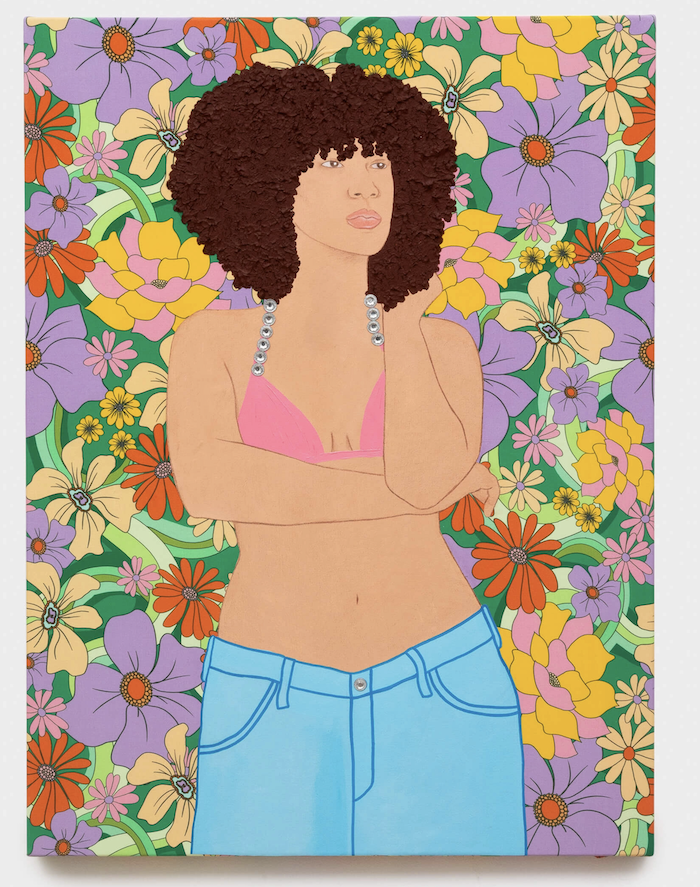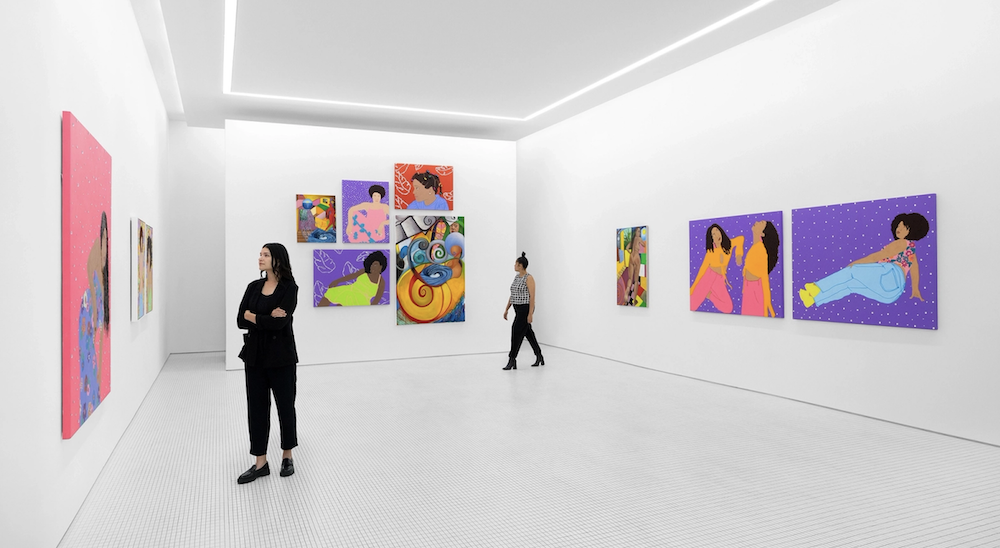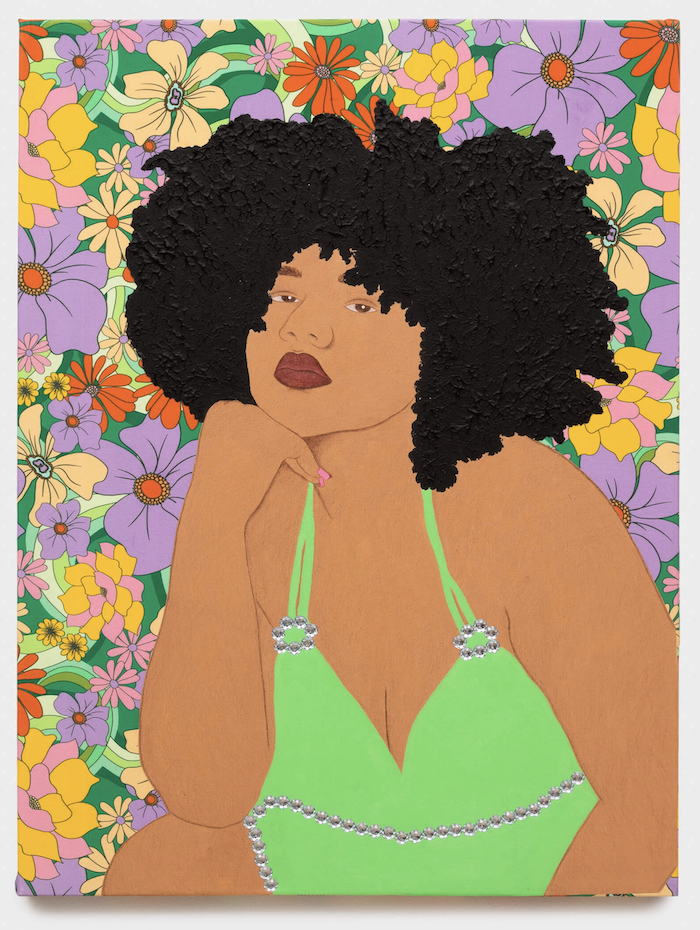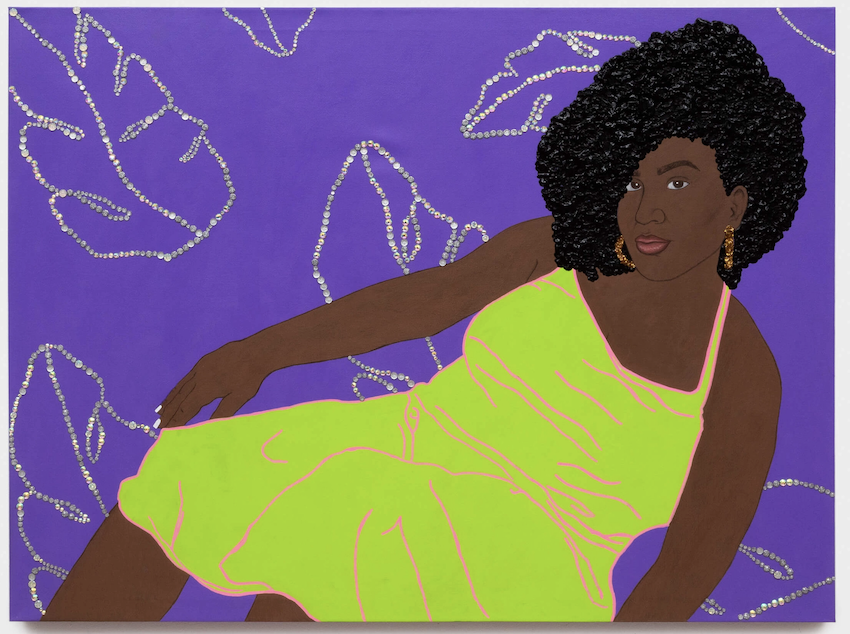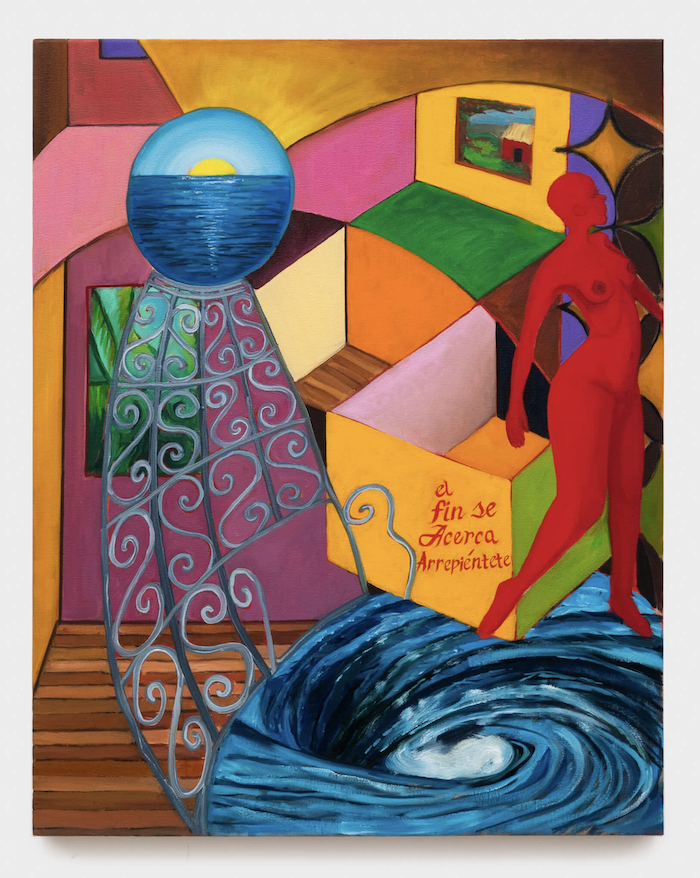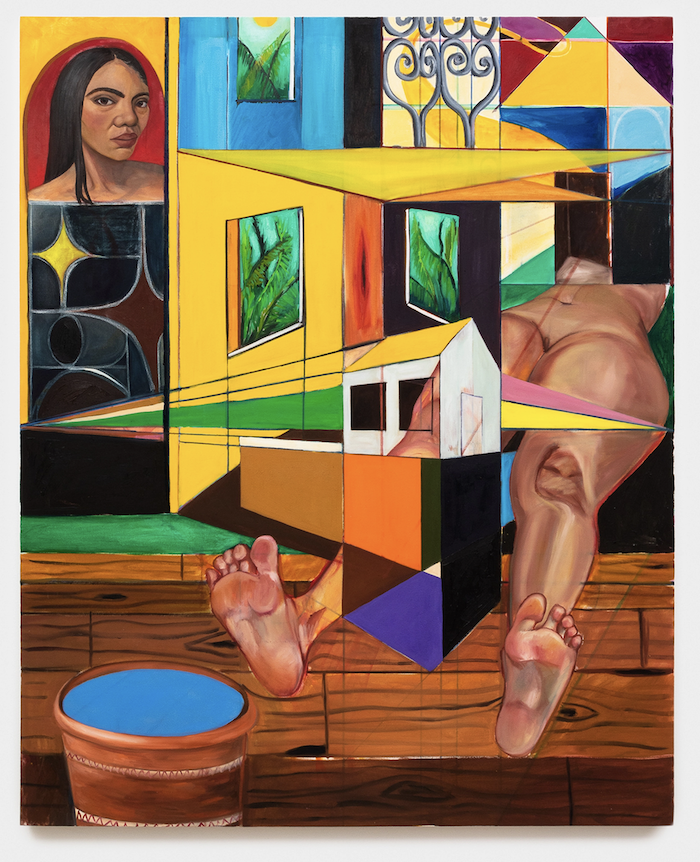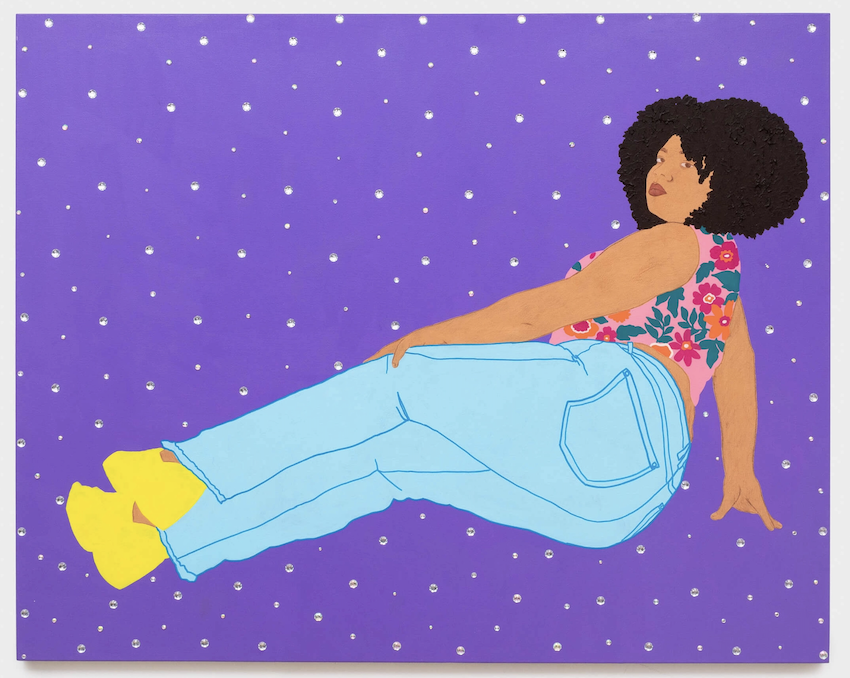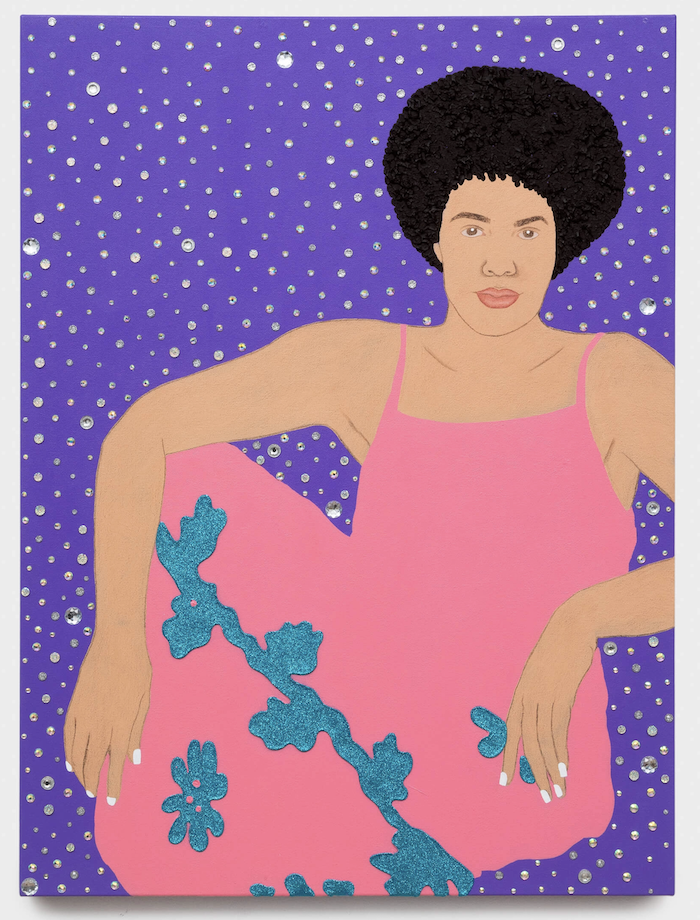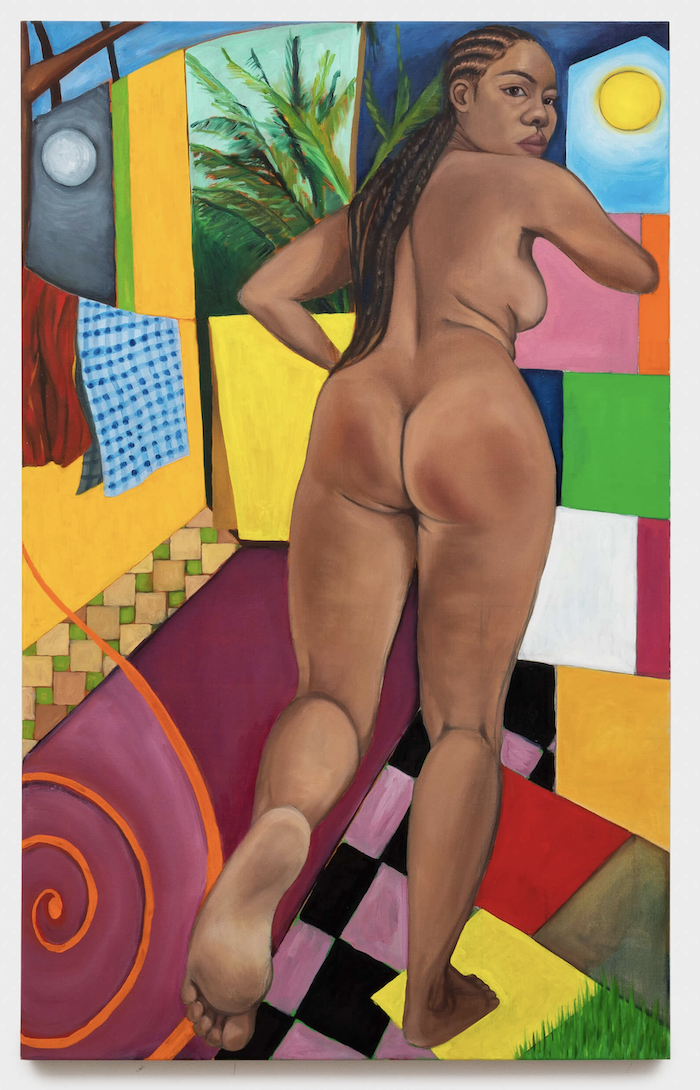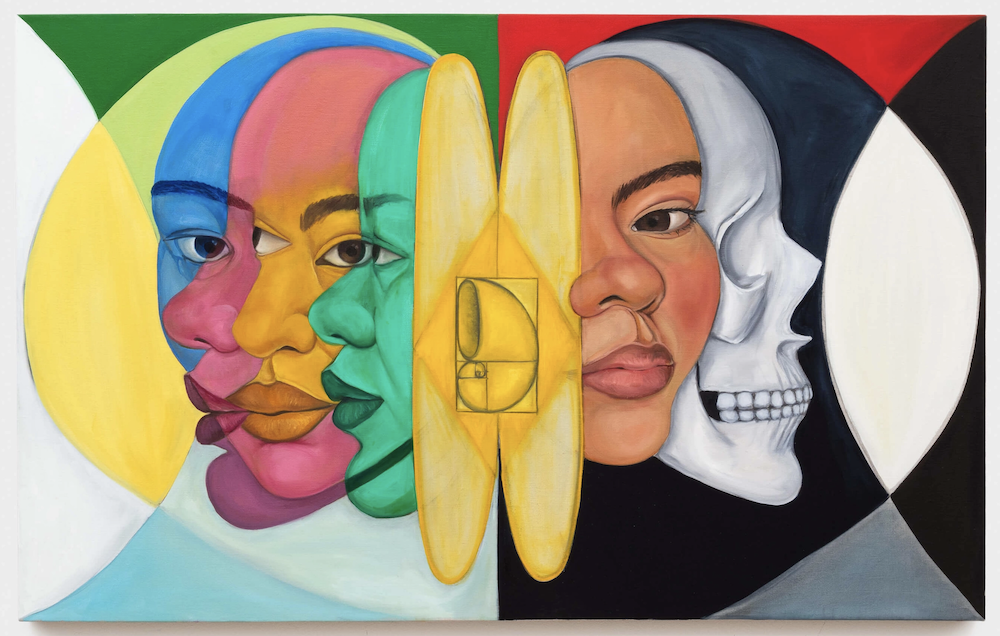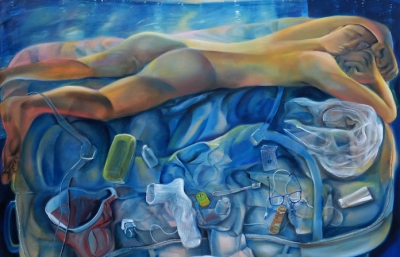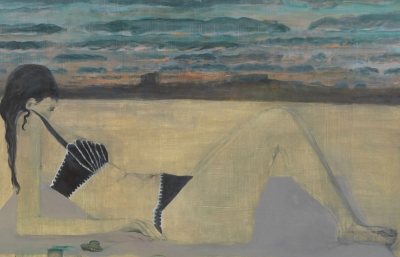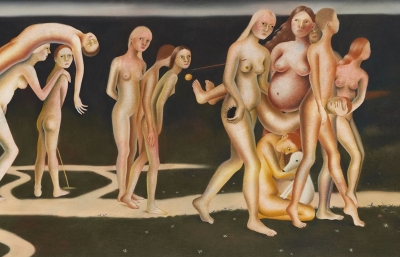Library Street Collective is pleased to present a two-person exhibition with New York-based artists Tiffany Alfonseca and Monica Hernandez, titled Found in Translation. The featured series of figurative paintings, imbued with vibrant colors that echo the artists’ Dominican heritage, explore the interplay of place and time in relation to representations of the female body.
Alfonseca continuously taps into her Afro-Dominican roots and leverages it as a conceptual cantilever that provides a dynamic framework for her artistic practice. Across the breadth of the artist’s output, consistent and vital themes that emerge are those of female empowerment and the promotion of self-love. Within the presented paintings, Alfonseca maximizes these elements through the deliberate portrayal of her subjects, capturing the women not in action, but in states of tranquil repose. Their settings, devoid of environmental context, serve as a stage for the compositions’ focal points—the subjects themselves—creating a dedicated space for admiration and celebration. To craft her figures, Alfonseca looks to her friends and family, Hernandez included, using both live models and photographs as a foundation. In addition to paint, a mix of media accentuates Alfonseca’s compositions, including fabric, glitter and rhinestones. This collage of material not only builds a distinct physicality amongst the canvas’ surfaces, but also represents an interweaving of personal experiences as a Dominican American woman with those collective of her community.
Similarly, Hernandez’s oil paintings explore gender, identity, sexuality, and representation. The new paintings she presents are steeped in introspection as the artist referenced photographs of herself as an initial point of departure. In this sense, the works are autobiographical by nature, however, their development strays from realistic depictions of the physical body in a psychological pursuit of processing intergenerational traumas, desires and lived experiences. Hernandez emphasizes an interest in progressing her studies of the female form in relation to domestic interiors by taking the figure out of the confines of a set place and time. Toying with perspective, she deconstructs her compositions and rearranges the elements into geometric dreamscapes that serve as visual metaphors for her active analysis of personal memories and relationships. In doing so, Hernandez depicts a space that is familiar yet constantly in flux, an environment that encapsulates and allows her to reflect on the abundance of experiences that have made her who she is today. As a result, her canvases become channels for assimilating the complexities of the past and present.
Found in Translation unites the synergetic work of two artists whose Dominican roots exist at the forefront of their practices. Their shared focus on the body as a visual motif is important in dissecting the amalgamation of various different cultures that uniquely make up the Dominican diaspora. The array of women presented throughout the canvases—in their various skin tones, hair textures, body types—aim to visually articulate that the Black and Afro-Latinx diaspora does not exist within a monolith, but that these communities are a cultural cornucopia that is vast, varied and complex. Alfonseca and Hernandez look in part to the stories and traditions of their ancestors to create paintings with younger generations in mind, in hopes of providing a sense of visibility that was less pronounced in their own formative years.



